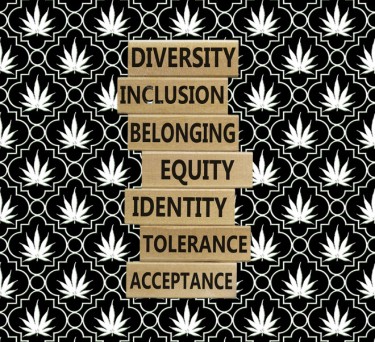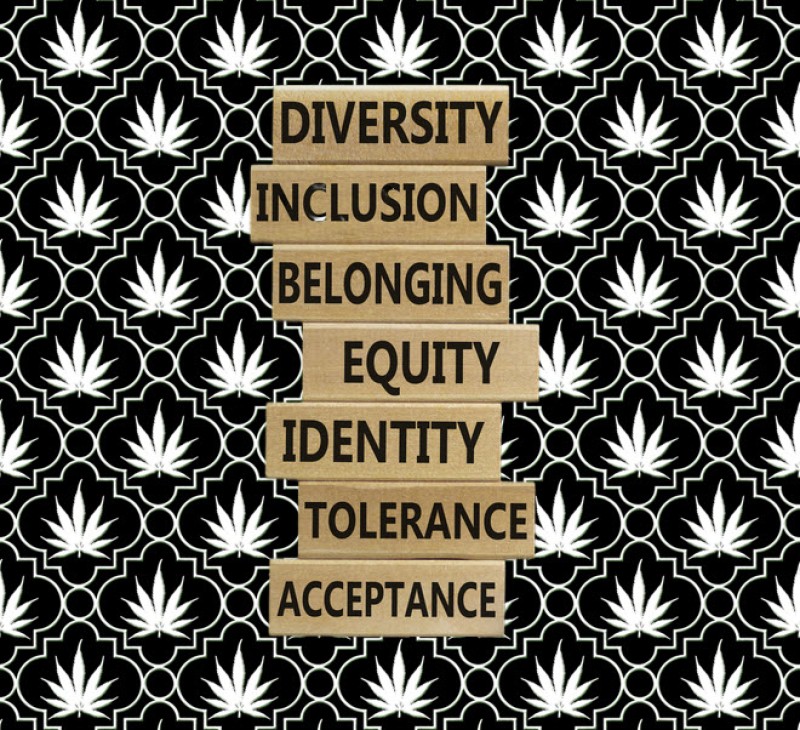
As your friendly neighborhood cannabis connoisseur, I've been singing the praises of legalization for years. The end of prohibition, the dawn of a new green era - it's been a beautiful thing to watch unfold. But folks, I've got to tell you, not everything in this budding industry is coming up roses. Today, we're going to peek behind the emerald curtain and take a hard look at a troubling trend that's casting a shadow over our cannabis utopia.
Remember all those promises about social equity? How legalization was supposed to right the wrongs of the War on Drugs and give opportunities to those most affected by prohibition? Well, it turns out that some slick operators have found a way to game the system, using predatory contracts to exploit the very people these programs were meant to help.
I recently came across a story out of Missouri that made my blood boil faster than a dabbed-out teenager's parents. It seems that some big-money players are using qualified applicants - we're talking disabled veterans, people with past marijuana offenses, folks who've been historically disadvantaged - as fronts to win lucrative cannabis licenses. These vultures swoop in with promises of funding and support, only to bury the fine print that essentially strips away any real ownership or control from the supposed beneficiaries.
Now, I'm all for partnerships and mentorship in this industry. Lord knows, getting a cannabis business off the ground is no easy feat. But what we're seeing here isn't partnership - it's parasitism. It's the corporate equivalent of bogarting a joint, and it's threatening to turn the dream of an equitable cannabis industry into nothing more than a pipe dream.
So buckle up, dear readers. We're about to take a trip to the dark side of legalization, where the only thing getting higher than the customers are the profits of those exploiting the system. It's time to shine a light on these shady practices and figure out how we can get this industry back on track to being the force for positive change we all know it can be.
The Full Picture
Picture this: Destiny Brown, a Black disabled veteran, thinks she's hit the jackpot. She's been recruited to own and operate a small-scale Missouri cannabis dispensary, with the promise of a cool $200,000 just for being the face of the operation. Sounds like a dream come true, right? Well, as your pal Reginald always says, if it sounds too good to be true, it probably is.
Our girl Destiny didn't read the fine print of that 40-page contract she signed with cannabis investor Michael Halow. And boy, was that fine print finer than the trichomes on top-shelf bud. While Halow was singing sweet nothings about $2 million in startup funds, the contract's sneaky language aimed to give him full ownership of the business. Destiny? She'd just be the legal front, a puppet on a string for a dude with a felony record that might disqualify him from holding a license himself. Talk about a bait-and-switch!
But here's the kicker, folks - this isn't just one bad apple in the barrel. This is happening all over, with massive corporations using "social equity" as a smokescreen to corner the market. These corporate fat cats are gobbling up licenses meant for those most affected by the War on Drugs faster than I devour a bag of chips during a serious case of the munchies.
Here's how it works: They find someone who checks all the right boxes - maybe they're a person of color, maybe they've got a past marijuana offense, maybe they're from a low-income area. They promise them the moon and the stars, dazzling them with visions of cannabis entrepreneurship. But in reality, these folks are nothing more than employees - sometimes very well-paid employees, but employees nonetheless - of some mutual fund firm or big cannabis conglomerate.
So when you hear about a "Black-owned dispensary" in your neighborhood, dig a little deeper. Chances are, it's about as Black-owned as a sunset is owned by the sun. It's just a clever bit of marketing, a way for these big corporations to justify their presence in a market that was supposed to prioritize the little guy.
Now, I'm not saying every social equity program is a sham. There are genuine efforts out there to level the playing field. But too often, these programs are being exploited by those with deep pockets and teams of lawyers, leaving the very people they were meant to help out in the cold.
It's a far cry from the vision of legalization many of us had. We thought we were building an industry that would right the wrongs of the past, create opportunities for communities devastated by prohibition, and maybe spread a little love and understanding along the way. Instead, we're watching as the same old story of corporate greed plays out in a new arena.
But don't lose hope, my cannabis friends! Reginald hasn't given up on the dream of a truly equitable cannabis industry. In fact, I've got some ideas on how we can turn this ship around. But before we get to that, let's take a moment to really let this sink in. The cannabis industry, born from counterculture and social justice movements, is at risk of becoming just another playground for the rich and powerful. It's enough to harsh anyone's mellow. But fear not - in our next segment, we'll light up some ideas for a brighter, more equitable future in cannabis.
What True Equity looks like
If we want to level the playing field in the cannabis industry, we need to lower the bar of entry. It's as simple as that. We can't expect folks who've been disproportionately affected by the War on Drugs to suddenly have fat stacks of cash to invest in a dispensary. That's like expecting a sapling to weather a hurricane - it ain't gonna happen.
So, how do we give these good people a real shot? We make licensing and operations as easy as rolling a joint (well, maybe a bit harder, but you get my drift). That's why I've been pushing for a Two Tier System that could revolutionize the way we approach cannabis business.
Picture this: Tier One, the "Average Joe" tier. For a cool grand a year, anyone could get licensed to grow and sell their own cannabis to willing customers. Think of it like a Farmer's Market for weed. No need for the same rigorous testing as the big boys - we're talking small-scale, community-focused operations. Imagine a world where Destiny Brown could set up shop at a local market, selling her homegrown strains directly to the people. And if dispensaries need to restock? They could buy from these small growers too, breaking free from the stranglehold of single suppliers.
Now, here's the kicker - this tier would have a profit cap of $1 million. Hit that mark, and it's time to graduate to the big leagues.
Speaking of big leagues, let's talk Tier Two - the corporate tier. This is where your hedge funds and massive cannabis conglomerates would play. Higher initial costs, stricter regulations, but also more privileges like selling in major retailers and developing new products. It's a fair trade-off - you want to play with the big boys? You gotta pay to play.
Under this system, we're not just paying lip service to equity - we're creating real opportunities. Someone like Destiny Brown wouldn't need to sign her life away to some shifty investor. She could start her own gig with minimal upfront costs, and let the free market decide if she's got the goods.
And let me tell you, friends, this is what made America great in the first place. Free markets, open competition, the chance for anyone with a dream and a strong work ethic to make it big. It's time we brought that spirit back to the cannabis industry.
If we truly want social equity, we need to tear down these ridiculous barriers to entry. Let people be free, independent, and build their businesses from the ground up. No more of this corporate puppeteering nonsense.
Think about it - with a system like this, we could see a renaissance of craft cannabis. Small growers could experiment with unique strains, creating a diverse marketplace that caters to every preference. We'd be fostering innovation, supporting local economies, and giving people real ownership over their businesses.
This isn't just about making money, folks. It's about creating a just and equitable industry that lives up to the ideals of the legalization movement. It's about righting the wrongs of the past and creating opportunities for those who've been left behind.
So, my cannabis comrades, it's time to stand up and demand real change. No more settling for false promises and predatory contracts. Let's push for a system that truly empowers individuals, fosters competition, and creates a diverse, vibrant cannabis industry. That's what real equity looks like, and that's the future I'm fighting for.
Who's is with me?






